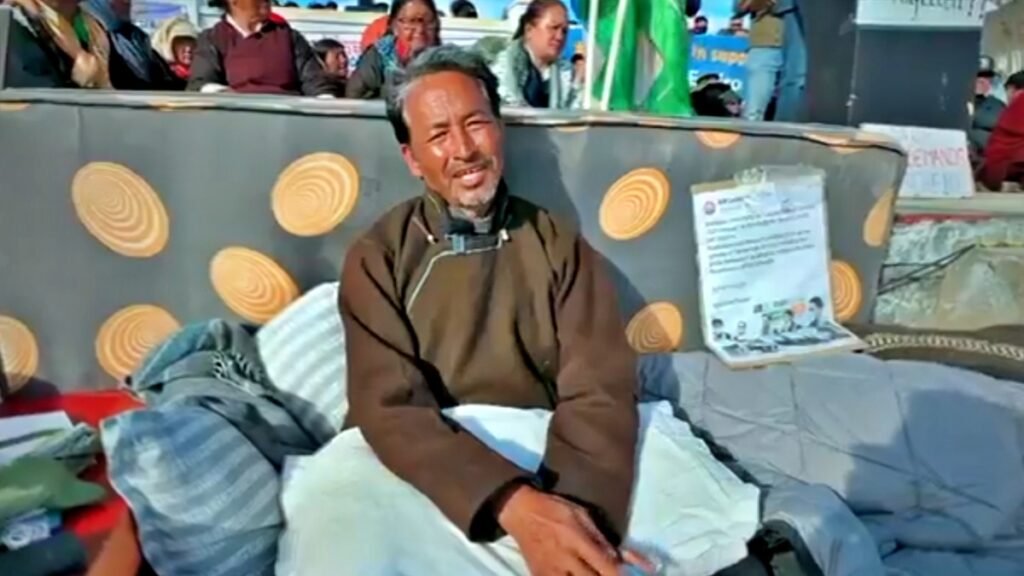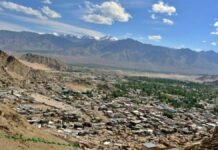
New Delhi: In a significant development, Sonam Wangchuk, the renowned climate activist, has ended his 21-day hunger strike that commenced on March 6. The strike was a peaceful protest demanding statehood for the region of Ladakh. Upon concluding his fast, Wangchuk emphasized that his commitment to the cause remains unwavering.
“I will continue to fight for constitutional safeguards for Ladakh and the political rights of the people,” Wangchuk declared, signaling that the termination of his hunger strike marks not an end, but a transition to a new phase in the ongoing struggle for Ladakh’s autonomy.
The cessation of Wangchuk’s fast was met with widespread support, as thousands of individuals across Ladakh gathered in solidarity. The activist’s demands include full statehood for Ladakh, job reservations for locals, a parliamentary seat each for Leh and Kargil, and the implementation of the Sixth Schedule of the Constitution. Additionally, Wangchuk advocates for special land and job rights, along with the establishment of a Public Service Commission.
Earlier on Tuesday, Wangchuk reiterated his call to the Central government to address and fulfill the demands of the Ladakhi people. He has been a vocal critic of the environmental impact and lack of local development following the abrogation of Section 370 in 2019, which led to the reclassification of Ladakh as a Union Territory. According to Wangchuk, this change has centralized power in Delhi, paving the way for industrial activities that threaten the region’s delicate ecosystem and overlook the welfare of its residents.

The activist’s stance highlights the broader implications of the removal of Section 370 from Jammu and Kashmir, which previously granted special constitutional powers to the states. With the revocation of this provision, Ladakh’s status shifted, raising concerns about environmental degradation and the neglect of local interests in the face of external industrialization.
Wangchuk’s efforts underscore the growing call for greater autonomy and recognition of the unique cultural and ecological landscape of Ladakh, as the region seeks to chart its own course in the post-Section 370 era.





















































